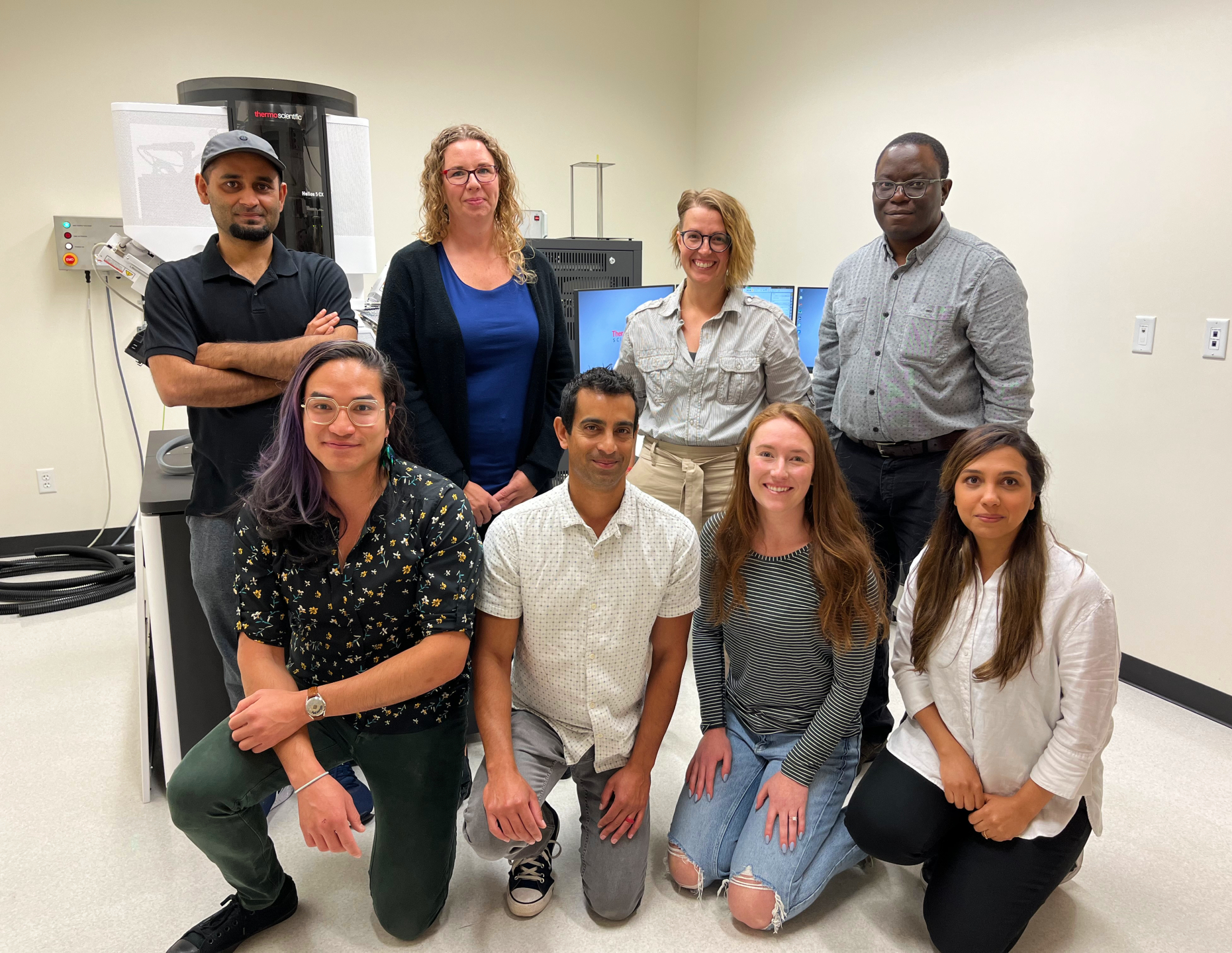Get to know the Core Research Facilities
14 September 2022

Top row left to right: Sudip Subedi, Serene Wohlgemuth, Aja Rieger and Oluseye Salami. Bottom row: Mike Wong, Audric Moses, Kiera Smith and Sara Amidian. Some of the helpful experts at the Core Research Facilities.
Did you know the Faculty of Medicine & Dentistry, through the Office of Research, offers seven core research facilities? These facilities allow researchers access to specialized scientific infrastructure at a reasonable cost, providing access to both state-of-the-art equipment and dedicated technical expertise.
The centralized facilities allow for a wider range of researchers to access equipment and instruments that might normally be out of reach (often due to cost) and promote opportunities for collaboration and promotion of higher-level experimentation.
Wendy Magee, director for the past seven years, wants to get the word out.
“One of the key points is that it’s not just equipment in a lab,” she says. “We also have dedicated staff available who are experts in using that equipment available to researchers. They can help design experiments and point you in the right direction. They can train your staff and help with data analyses.”
The core facilities are an important part of not only advancing research but also training future researchers. Experts on staff offer workshops and seminars to help keep researchers up-to-date in their fields.
“That way, researchers are guaranteed to end up with reproducible data and the science is better,” says Richard Lehner, vice dean of research in the Faculty of Medicine & Dentistry and core facilities administrator.
Because the equipment is very expensive, it often isn’t realistic for individual labs to have their own.
“If your lab doesn't have a lot of funding, you can use the core facilities for a relatively low price. The facilities are highly subsidized. We keep user fees low so that researchers can access them while still raising enough revenue to stay sustainable and buy new equipment,” says Magee.
The facilities are advised by expert committees that decide which equipment to purchase to stay competitive with similar institutions across the globe. Labs from around the world use the facilities, which are available to more than just university researchers.
“One of our facilities has regular users from Toronto, Montreal, New York, and chemical companies here in Edmonton. We’ve had a company in Germany reach out for analysis,” says Magee. “Private companies send us their samples and we analyze them. We are open to everybody.”
The core facilities are considered essential. During the pandemic, they were critical for COVID-19 research done in Alberta and remained open.
The core facilities include:
- cell imaging core, which provides services and training for light and electron microscopy
- flow cytometry facility used to analyze cells suspended in solution
- high content analysis core for managing and automating large-scale experiments in areas such as drug discovery, single cell analysis and next-generation sequencing
- lipidomics core for isolating and quantifying lipids and lipid-related molecules
- transgenic core that helps researchers with their transgenic mouse production and archiving needs
The flow cytometry facility is the jewel in the core portfolio. Recently, flow core manager Aja Rieger won an International Society for Advancement of Cytometry (ISAC) Emerging Leader Program award, and the facility — one of only eight worldwide — has been recognized by ISAC as a Shared Resource Laboratory for excellent operations and adherence to best practices.
The facilities also include an autoclave repair core and a workshop for repair maintenance and fabrication services.
“We want to let researchers know that our facilities are available to them. We’re always happy to answer questions,” says Lehner.
To contact the Core Research Facilities for questions or inquiries, reach out to Richard Lehner via email at rlehner@ualberta.ca or phone at 780-492-2963.
.